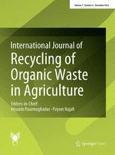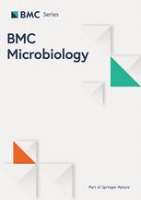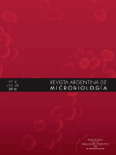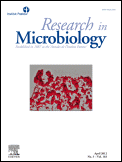
ANAEROBE
Scope & Guideline
Advancing Knowledge in Microbial Interactions
Introduction
Aims and Scopes
- Clinical Microbiology of Anaerobes:
Research on the clinical implications of anaerobic bacteria, including their identification, characterization, and pathogenicity in human infections such as bacteremia, soft tissue infections, and gastrointestinal diseases. - Microbial Ecology and Diversity:
Studies examining the diversity of anaerobic microbial communities in various habitats, including human microbiomes, animal guts, and environmental samples, focusing on their roles in health and disease. - Antimicrobial Resistance and Susceptibility:
Investigations into the resistance patterns of anaerobic bacteria, particularly Clostridioides difficile and Bacteroides species, and the mechanisms underlying resistance, including genetic characterization. - Anaerobic Digestion and Biotechnology:
Research on the use of anaerobic bacteria in biotechnological applications such as biogas production, waste treatment, and the development of probiotics and vaccines. - Pathogenic Mechanisms and Host Interactions:
Studies that explore the virulence factors of anaerobic pathogens, their interactions with host immune systems, and the implications for disease progression and treatment. - Emerging Anaerobic Pathogens:
Identification and characterization of newly recognized anaerobic pathogens and their clinical significance, with a focus on novel species and their roles in infectious diseases.
Trending and Emerging
- Microbiome Research and Its Clinical Implications:
There is a growing trend towards studying the human microbiome, particularly the role of anaerobes in gut health, disease, and the impact of microbiome dysbiosis on conditions like obesity and colorectal cancer. - Novel Therapeutics and Vaccines Against Anaerobic Infections:
Research focusing on the development of innovative therapeutic strategies, including vaccines against Clostridioides difficile infections and other anaerobic pathogens, is on the rise. - Environmental Impact of Anaerobes:
Increasing attention is being given to the role of anaerobic bacteria in environmental processes, such as bioremediation and waste treatment, which reflects a broader interest in sustainability and ecological health. - Host-Microbiome Interactions:
Emerging studies are delving into the complex interactions between anaerobic bacteria and the host immune system, particularly how these interactions influence disease outcomes and therapeutic responses. - Antimicrobial Resistance Mechanisms:
There is heightened research interest in understanding the genetic and molecular mechanisms of antimicrobial resistance in anaerobes, particularly in the context of evolving treatment challenges.
Declining or Waning
- Traditional Antibiotic Susceptibility Testing:
Research focused on conventional methods for testing antibiotic susceptibility in anaerobes has decreased as newer molecular and rapid diagnostic techniques gain traction. - Basic Taxonomy of Anaerobic Bacteria:
The emphasis on basic taxonomic studies has waned in favor of more applied research that focuses on clinical implications, ecological roles, and biotechnological applications. - Animal Models for Anaerobic Infection Studies:
The use of animal models specifically for studying anaerobic infections has declined, possibly due to the increased focus on human clinical studies and microbiome research. - Single-Pathogen Studies:
Research concentrating on single anaerobic pathogens without considering the complex interactions within microbial communities has become less prevalent as the field moves towards understanding polymicrobial infections.
Similar Journals

Gut Pathogens
Connecting the Dots Between Gut Health and Infectious ThreatsGut Pathogens, published by BMC in the United Kingdom, is a premier open-access journal focusing on the intersection of gut health and infectious diseases. With its impact firmly established since its inception in 2009, the journal has earned impressive rankings, including Q1 in renowned categories such as Gastroenterology, Infectious Diseases, Microbiology, and Parasitology, while maintaining a strong presence in Virology. The journal serves as a vital resource for researchers, professionals, and students interested in the intricate relationships between gut microbiota and pathogenic organisms, offering insights that drive advancements in treatment and prevention strategies. By providing unrestricted access to high-quality research, Gut Pathogens fosters a collaborative environment, encouraging the dissemination of knowledge and innovation within the field. The journal publishes original research, reviews, and case studies, all designed to address contemporary challenges in gut health, ultimately aiming to improve patient outcomes and public health worldwide.

Reviews and Research in Medical Microbiology
Unveiling Innovations in Infectious Disease ResearchReviews and Research in Medical Microbiology is a premier academic journal published by LIPPINCOTT WILLIAMS & WILKINS, focusing on groundbreaking research and comprehensive reviews that advance the understanding of medical microbiology. With an ISSN of 2770-3150 and an E-ISSN of 2770-3169, this journal serves as an essential resource for researchers, healthcare professionals, and students dedicated to the study of pathogens, infectious diseases, and microbial mechanisms affecting health. While the journal currently does not offer open access, its rigorous peer-review process ensures that only high-quality, impactful research is disseminated to the scientific community. The journal aims to bridge gaps in knowledge by presenting cutting-edge studies that explore novel therapeutic strategies, diagnostic methods, and the evolving landscape of microbial resistance. Nestled in the heart of Philadelphia, this journal proudly contributes to the advancement of medical microbiology and is an indispensable platform for the publication of critical findings that shape clinical practices and research trajectories in the field.

ACTA MICROBIOLOGICA ET IMMUNOLOGICA HUNGARICA
Unveiling the complexities of immune responses.ACTA MICROBIOLOGICA ET IMMUNOLOGICA HUNGARICA is a distinguished academic journal published by AKADEMIAI KIADO ZRT, focusing on significant advancements in the fields of microbiology, immunology, and infectious diseases. Established in 1994, this journal serves as a vital platform for researchers, professionals, and students keen on exploring the complexities of microbial interactions and immune responses. With a current Impact Factor reflecting its rank within the Q3 categories for Immunology, Microbiology, and Infectious Diseases, it retains a critical position in disseminating innovative research. Although not open access, the journal provides extensive insights disseminated through various academic databases, ensuring a broad reach within the scholarly community. Its convergence over three decades indicates a robust commitment to excellence in scientific inquiry and knowledge sharing. As it moves towards the future, ACTA MICROBIOLOGICA ET IMMUNOLOGICA HUNGARICA continues to uphold its legacy of fostering collaborative research initiatives that contribute to the understanding and treatment of microbial diseases globally.

International Journal Of Recycling of Organic Waste in Agriculture
Transforming Waste into Agricultural GoldInternational Journal of Recycling of Organic Waste in Agriculture is a pioneering open-access journal, established in 2012 and published by the Islamic Azad University, Isfahan-Khorasgan Branch, Iran. With ISSN 2195-3228 and E-ISSN 2251-7715, this journal focuses on innovative research and development in the field of organic waste recycling within agricultural contexts. As indicated by its latest metrics, it holds a respectable ranking in the Q2 quartile in Agricultural and Biological Sciences and Q3 in Waste Management and Disposal for 2023. This positions the journal as a valuable resource for professionals, researchers, and students invested in sustainable agricultural practices and waste management strategies. With its commitment to advancing knowledge and fostering interdisciplinary dialogue, the journal serves as an essential platform for disseminating significant findings that can positively impact environmental sustainability and agricultural productivity worldwide.

ANNALS OF MICROBIOLOGY
Empowering scholars with vital insights in microbiology.ANNALS OF MICROBIOLOGY is a prestigious journal dedicated to advancing the field of microbiological research, published by BMC, renowned for its commitment to providing open access to vital scientific findings. With its ISSN 1590-4261 and E-ISSN 1869-2044, this journal provides a platform for the dissemination of high-quality research since its inception in 1997. Renowned for its rigorous peer-review process, it has attained a commendable Q2 ranking in the Applied Microbiology and Biotechnology category in 2023, reflecting its significant contributions to the discipline. Positioned within the 67th percentile among its peers in Scopus rankings, ANNALS OF MICROBIOLOGY continues to facilitate the exchange of innovative ideas and methodologies, serving as an essential resource for researchers, professionals, and students alike. The journal covers a broad spectrum of topics, emphasizing the intersection of microbiology with applied sciences, thereby fostering an environment that encourages collaboration and advancement in this vital field. Scholars seeking to stay at the forefront of microbiological studies will find ANNALS OF MICROBIOLOGY an invaluable addition to their academic pursuits.

BMC MICROBIOLOGY
Fostering collaboration in the ever-evolving field of microbiology.BMC Microbiology is a leading open access journal published by BMC, dedicated to advancing the field of microbiology since its inception in 2001. With an ISSN of 1471-2180, this journal provides a vital platform for researchers, professionals, and students to share and access high-quality research and innovation in both general and medical microbiology. Based in the United Kingdom, BMC Microbiology holds a commendable Q2 ranking in both various microbiological categories according to the 2023 Scopus rankings, indicating its strong influence in the microbiological community, with a rank of #47 out of 140 in Medical Microbiology and #62 out of 182 in general Microbiology. The journal's commitment to open access ensures that groundbreaking research is freely available to facilitate collaboration and knowledge sharing among the global community of microbiologists. With a focus on publishing original research, reviews, and case studies, BMC Microbiology plays a critical role in disseminating information that can impact health and environmental conditions around the world.

Microorganisms
Exploring the unseen world of microorganisms.Microorganisms is a leading open-access journal published by MDPI based in Switzerland, catering specifically to the rapidly evolving fields of microbiology and virology. Since its inception in 2013, the journal aims to foster the dissemination of high-quality research through its comprehensive and interdisciplinary platform, with a particular focus on both fundamental and applied microbiological sciences. Contributing to its esteemed reputation, Microorganisms holds a commendable Q2 ranking in the categories of Microbiology and Virology, as well as in Medical Microbiology, highlighting its significance in the academic community. With a consistent impact, evidenced by its rankings in Scopus—such as rank #25 in Virology and #56 in Microbiology—the journal serves as an invaluable resource for researchers, professionals, and students looking to stay at the forefront of microbiological research. As an open-access journal, Microorganisms ensures that vital research findings are readily available to a global audience, promoting collaboration and innovation in the study of microbial life and its implications for health and disease.

REVISTA ARGENTINA DE MICROBIOLOGIA
Pioneering accessible research in the heart of microbiology.REVISTA ARGENTINA DE MICROBIOLOGIA, published by the ASOCIACION ARGENTINA MICROBIOLOGIA, stands as a prominent open-access journal in the field of microbiology and medicine since its establishment in 1979. With an ISSN of 0325-7541 and an E-ISSN of 1851-7617, this journal has paved the way for disseminating high-quality research while enhancing accessibility for academics and practitioners worldwide. The journal has achieved notable rankings, being classified in Q3 for Medicine (miscellaneous) and Q3 for Medical Microbiology in 2023, reflecting its commitment to advancing knowledge in these critical areas. Despite its relatively modest impact factors, it occupies a vital niche in the academic landscape, fostering collaborations and innovative research among experts. With Open Access available since 2013, REVISTA ARGENTINA DE MICROBIOLOGIA not only facilitates widespread distribution of valuable scientific information but also empowers researchers, professionals, and students to stay abreast of the latest findings and developments in microbiology. For those engaged in the evolving realm of microbiology, this journal serves as an essential resource for sharing insights and advancing the scientific community.

Malaysian Journal of Microbiology
Connecting Research and Practice in Applied MicrobiologyMalaysian Journal of Microbiology is a prestigious open-access journal dedicated to advancing the field of microbiology, published by the Malaysian Society for Microbiology. Since its inception in 2005, this journal has become an essential platform for researchers and practitioners, facilitating the dissemination of innovative studies in applied microbiology, biotechnology, and infectious diseases. Based in Penang, Malaysia, this journal not only focuses on local microbiological research but also positions itself within the broader global scientific community. Although currently placed in the Q4 category in several relevant fields—including Applied Microbiology and Biotechnology, Infectious Diseases, and Medical Microbiology according to the 2023 Scopus rankings—it plays a crucial role in encouraging novel research and fostering collaboration among scientists. The journal encourages submissions that contribute to the understanding of microbial processes, disease mechanisms, and novel biotechnological applications, thereby supporting the continuous growth of knowledge in microbiology. With open access since its launch, the Malaysian Journal of Microbiology ensures that all published works are freely available to the public, enhancing their visibility and impact within the scientific community.

RESEARCH IN MICROBIOLOGY
Illuminating the complexities of life at the microscopic level.Research in Microbiology, published by Elsevier, is a prominent academic journal devoted to advancing the field of microbiology, encompassing a diverse array of topics including immunology, molecular biology, and biochemistry. Established in 1987, the journal has expanded its focus over the years, with a commendable impact factor reflecting its relevance and influence in the scientific community. Although it does not currently offer open access options, Research in Microbiology remains a crucial resource for researchers and professionals seeking to stay abreast of the latest findings and methodologies. The journal holds a respectable Q2 ranking in Medicine (miscellaneous) and a Q3 ranking in both Microbiology and Molecular Biology for 2023, highlighting its position within the scholarly landscape. With its base in France and accessible to a global audience, Research in Microbiology continues to foster scholarly exchange, making it an essential platform for the dissemination of impactful microbiological research.